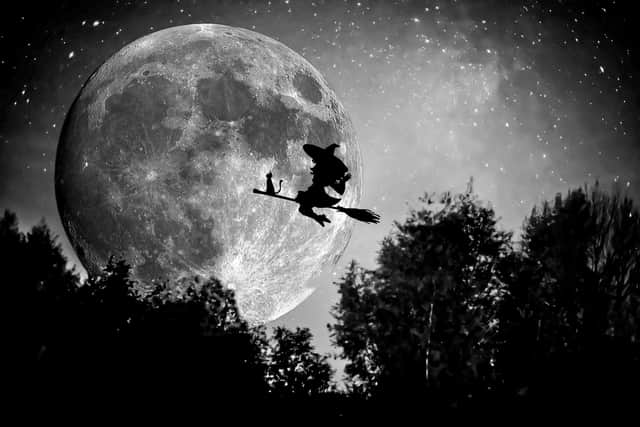Cenus reveals more than 30 'witches' living in Bassetlaw
and live on Freeview channel 276
As we celebrate Halloween, a look at the most recent census figures shows there are a surprising number of folks who identify as witches, pagans, and even Satanists across England and Wales.
In Bassetlaw, 33 people selected Wicca as their religion.
The religion developed in England during the first half of the 20th century with its name deriving from the Old English 'wicca' and 'wicce', the masculine and feminine term for witch.


Advertisement
Hide AdAdvertisement
Hide AdThe number of people in Bassetlaw identifying as wiccan is down from 36 in the 2011 census.
Across England and Wales, over 12,800 people opted for Wicca as their religion – a slight jump from 11,800 in 2011.
Separately, the number of people selecting Witchcraft as their religion has fallen from nearly 1,300 in 2011 to under 1,100 in the recent census.
The figures show two people in Bassetlaw selected Witchcraft as their religion in 2021.
Advertisement
Hide AdAdvertisement
Hide AdWhile the witch population has not soared, there has been a 30 per cent rise in pagans - from 56,600 people in 2011 to over 73,700 two years ago.
In Bassetlaw, 139 people said they were pagan.
Halloween, which has roots in paganism, originated from the Celtic celebration of Samhain that marked the end of summer and the beginning of the winter.
Celts believed the boundary between the worlds of the living and the dead became blurred on this night.
Celtic priests would build bonfires, where the people gathered to burn crops and animals as sacrifices to the Celtic deities.
Advertisement
Hide AdAdvertisement
Hide AdEventually, the influence of Christianity spread into Celtic lands and All Soul's Day and All Saint's Day – or All-Hallows – was created.
The census figures show Satanism is also on the rise across the nations.
Nearly 5,100 people identified as Satanists in the recent census – more than doubling from 1,900 a decade prior.
Despite the name, not all Satanists believe in a literal Lucifer.
Instead, it is often a metaphor for questioning authority and rejecting mainstream religion.
In Bassetlaw, six people said that they were Satanists.